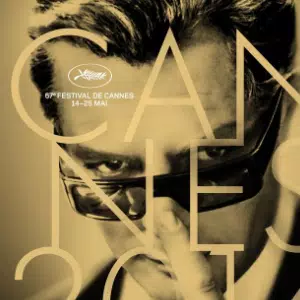
Hollywood mocking itself is nothing new. From Golden Age classics like Singin’ in the Rain and A Star is Born, to the 1990s directorial satires The Player and Barton Fink, and more recent self-referential films like Birdman and Babylon, Hollywood has always been willing to expose its own greed, absurdity, and even tragic downfall — because it has always retained a certain confidence in its allure over the public.
This self-assurance, however, often permeates so-called self-critical Hollywood films with an unmistakable air of narcissism. From an industry insider's perspective, such narcissism is understandable. Most Hollywood insider films are, at heart, team-building exercises: though full of jokes and jabs, they ultimately reaffirm the greatness of the dream-making machine. Storytelling becomes a way for filmmakers to recharge and reenergize, preparing to dive back into the exhausting grind of the industry.

For outsiders — even loyal movie fans — this strategy can be much less effective. After all, filmmakers are easily seduced by vanity and self-deception, and Hollywood insider stories often become a concentrated display of exactly that, unintentionally alienating audiences who might ask a simple, honest question: What does all this self-congratulation have to do with me?
Thankfully, the Apple TV+ series The Studio manages, to some extent, to break out of this mold. It cranks up the mockery to the maximum and dials the narcissism way down. Perhaps this “progress” is partly because it is an Apple production — tech new money doesn’t feel obligated to spare the feelings of old Hollywood money.
Yet The Studio also benefits from the insider's sharp perspective. Core creators Seth Rogen and Evan Goldberg, longtime Hollywood veterans, know the business, the politics, and the personalities inside and out. Their satire is especially lively, direct, and piercing.
The show opens with a major shakeup. At the fictional "Continental Pictures," the long-time CEO is replaced, and the old guard is cleared out. Producer Matt (Seth Rogen) gets a lucky promotion to second-in-command. But the new CEO immediately saddles him with a hot potato: co-producing an IP-based movie with the Kool-Aid brand. The executive's logic is simple: if The Super Mario Bros. Movie and Barbie made big money, why shouldn’t The Kool-Aid Movie?

However, Matt is conflicted. Like many in the industry, he was inspired by great films to join the business, hoping to make movies that both entertain and enlighten. Could a Kool-Aid-branded movie ever be that? Clearly not — and the thought pains him.
But a twist arrives. Legendary director Martin Scorsese (playing himself) pitches Matt a new project: a $200 million film about the Jonestown mass suicide, where cult members infamously drank poisoned Kool-Aid. It’s a financial bomb waiting to happen — just like Scorsese’s Killers of the Flower Moon (also funded by Apple). But Matt’s eyes light up: here was his chance to create a prestige "Kool-Aid Movie" that could satisfy both commerce and art. He greenlights the project at $250 million and buys the script for $10 million, dreaming of achieving greatness.


Unfortunately, reality quickly sets in. More pragmatic colleagues warn Matt against backing this inevitable disaster starring Steve Buscemi (a running gag is that no one can pronounce Buscemi’s name correctly). They urge him to stick to a safe, kid-friendly IP movie penned by the writers of The Muppets and Storks. Matt tries to argue by citing Greta Gerwig’s success with Barbie, but he caves the moment he faces his CEO (played by Bryan Cranston), humiliatingly abandoning his artistic dreams and making Scorsese cry.
Each episode of The Studio tells a relatively standalone story. Episode two, “The Oner,” hilariously depicts Matt ruining a single-take film by his idol Sarah Polley due to fanboy desperation. Episode three, “Feedback,” portrays how no executive dares deliver negative feedback to Ron Howard about his terrible new film. Episode four, “Missing Reels,” parodies Chinatown with a noir detective twist about missing footage. The series is packed with insider jokes, rapid-fire pacing that leaves actors gasping for air, and anxiety-inducing long takes that immerse viewers in the frantic chaos of Hollywood life.

Unlike the usual self-congratulatory insider films, The Studio is genuinely biting in its satire.
It skewers:
The hypocritical racial diversity strategies of studios;


Martin Scorsese’s trend of needing $200 million to make a movie lately;

The industry’s fawning, spineless behavior toward anyone with fame and power;

Veteran directors like “Ron Howard” (a stand-in for others, perhaps more accurately Francis Ford Coppola) being surrounded by sycophants, losing touch with reality;

The increasingly gimmicky obsession with long-take cinematography, humorously debated within the show as either the “pinnacle of filmmaking” or simply “the director jacking it off with camera.”



The Studio is merciless about the Hollywood system's lazy, creativity-killing dependence on youth-oriented IP content. Studio heads care less about making good movies and more about following TikTok trends, targeting kids and teens with assembly-line junk — until the money dries up.
Of course, the show isn’t without its flaws. Although technically a comedy, Matt’s repeated idiocy (especially in episode two) strains believability: how could someone this clueless be promoted so high? Some jokes feel a bit careless and far-fetched. Seth Rogen seems to have deliberately toned down the sharpness to avoid angering real-life executives — a necessary compromise, perhaps, to get the series made at all.
Still, compared to traditional insider films, The Studio strips away Hollywood’s habitual self-love. One reason, as mentioned, is that Apple is not part of Hollywood’s old guard. But another reason lies in Hollywood’s decline. The industry no longer exudes confidence in its own mythos; it no longer believes it can reclaim its lost glory in the face of countless new entertainment options. Yesterday’s promised land may truly be crumbling into tomorrow’s ruins, and workers like Matt are merely surviving, no different from laborers elsewhere.

When a person or an industry constantly reminisces about its past glories, it’s already admitting that it doubts its future.
Yet this decline doesn’t mean audiences can't find amusement in Hollywood’s frantic dysfunction. Nor does it mean that Hollywood’s self-repetitions represent the ultimate low point. The sinking of pop culture may be an irreversible sign of the times. We may resist it, but we are powerless to stop it. Accompanying Hollywood through its downfall might even be seen as a cinephile’s duty: if we once enjoyed the highs of Chinatown, Taxi Driver, and The Player, perhaps we must also endure its inevitable lows. Who knows? Maybe — just maybe — there’s still a chance for a miraculous comeback.
























































View replies 0
View replies 0
View replies 0
View replies 0